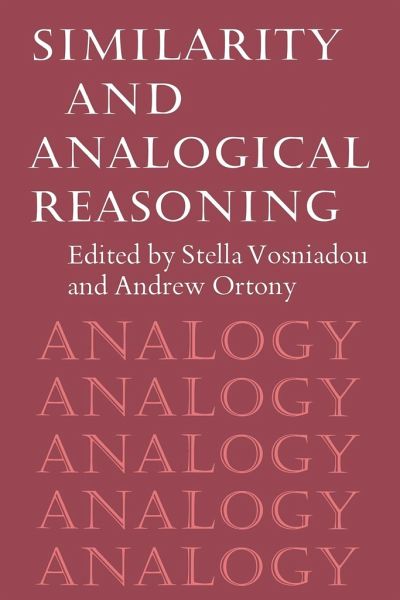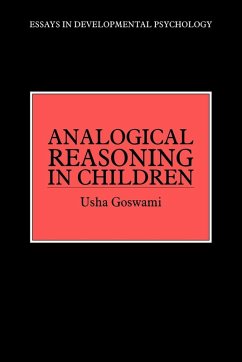
Similarity and Analogical Reasoning
Versandkostenfrei!
Versandfertig in 1-2 Wochen
69,99 €
inkl. MwSt.

PAYBACK Punkte
35 °P sammeln!
Similarity and analogy are fundamental in human cognition. They are crucial for recognition and classification, and have been associated with scientific discovery and creativity. Any adequate understanding of similarity and analogy requires the integration of theory and data from diverse domains. This interdisciplinary volume explores current development in research and theory from psychological, computational, and educational perspectives, and considers their implications for learning and instruction. The distinguished contributors examine the psychological processes involved in reasoning by ...
Similarity and analogy are fundamental in human cognition. They are crucial for recognition and classification, and have been associated with scientific discovery and creativity. Any adequate understanding of similarity and analogy requires the integration of theory and data from diverse domains. This interdisciplinary volume explores current development in research and theory from psychological, computational, and educational perspectives, and considers their implications for learning and instruction. The distinguished contributors examine the psychological processes involved in reasoning by similarity and analogy, the computational problems encountered in simulating analogical processing in problem solving, and the conditions promoting the application of analogical reasoning in everyday situations.














